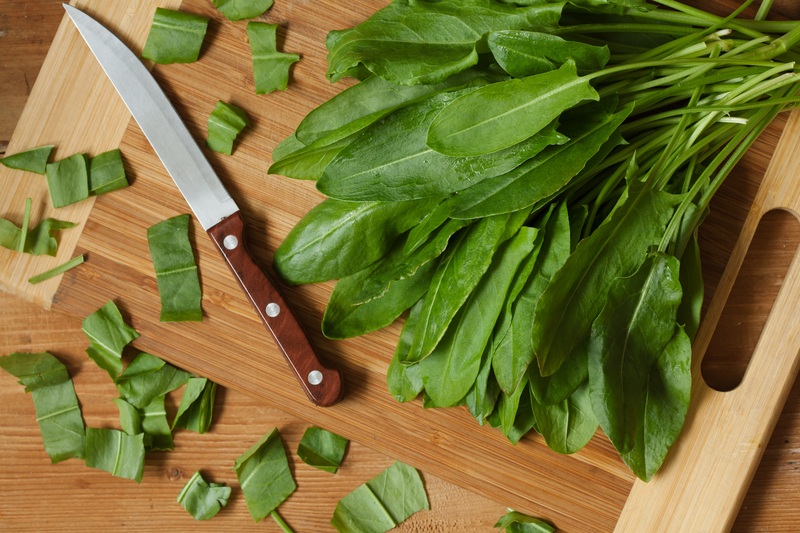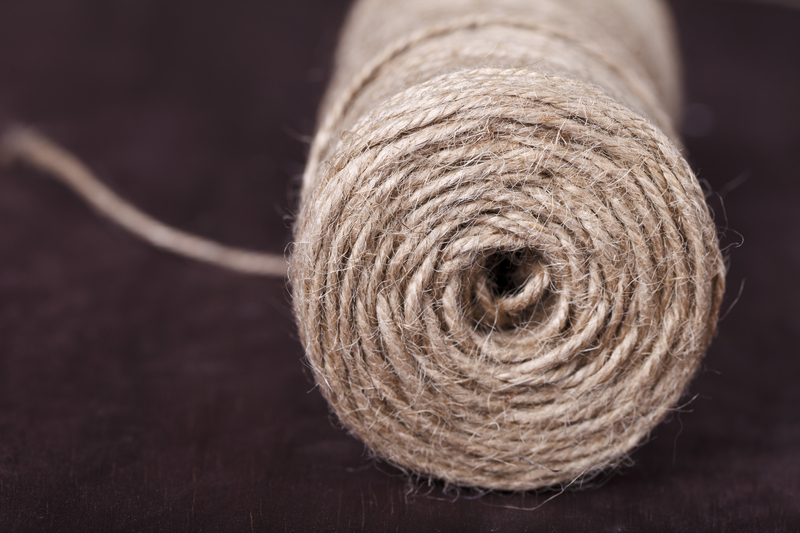Flourish with Ease: 9 Fundamental Gardening Tips for Starters
Posted on 08/09/2025
Flourish with Ease: 9 Fundamental Gardening Tips for Starters
Have you ever dreamt of stepping into your backyard and being greeted by a lush oasis of colors and life? If you're reading this, you're already on the path to transforming that dream into reality. Starting your gardening journey can feel intimidating, but it's truly accessible when you know the fundamental elements that lead to successful and vibrant growth. This comprehensive guide offers you practical gardening tips for beginners--or anyone looking to revisit the basics and flourish with ease.
Why Start Gardening?
Gardening is more than just planting seeds. It's a holistic activity that nourishes both body and soul. With benefits ranging from stress reduction and mental clarity to fresh, homegrown produce, the allure is undeniable. For starters, understanding gardening fundamentals lays the groundwork for a thriving green space. Whether you're tending to a balcony box or backyard beds, these essential gardening tips will help you cultivate your dream garden.

1. Know Your Garden's Microclimate
One of the main causes of disappointment for novice gardeners is selecting plants that aren't suitable for their unique environment. Every yard (or even apartment balcony) has microclimates--areas that receive different amounts of sun, wind, or moisture. Start by observing how the sun travels across your space during the day, noting shady versus sunny spots.
- South-facing gardens in the northern hemisphere receive more sunlight, perfect for sun-loving vegetables and flowers.
- North-facing spaces may require shade-tolerant annuals or perennials.
- Observe patches that collect excess rainwater or dry out quickly.
Tip: Selecting the right plants for your specific microclimate encourages strong, healthy growth and reduces maintenance headaches.
2. Start with Quality Soil Preparation
Healthy gardens begin with good soil. Whether you're working with ground beds or containers, understanding your soil's composition is crucial. Most plants thrive in soil that is loamy--rich in organic matter, holds moisture, but drains well.
- Test Your Soil: Home testing kits or professional services can help you determine your soil's pH and nutrient levels.
- Amend as Needed: Add compost, manure, or aged mulch to improve soil texture and fertility.
- Avoid Compacting: Work the soil only when dry to prevent long-term compaction which affects root health.
Quality ground preparation is the first step in creating a garden that flourishes effortlessly.
3. Choose Beginner-Friendly Plants
When starting out, choose plants that are easy to grow and resilient. These offer quick satisfaction and help build your gardening confidence:
- Herbs: Basil, mint, rosemary, and chives thrive in most conditions and offer culinary benefits.
- Vegetables: Lettuce, radishes, cherry tomatoes, and beans are forgiving choices for novices.
- Flowers: Marigolds, zinnias, sunflowers, and pansies are hardy, colorful, and low-maintenance.
Pro tip: Ask your local garden center for recommendations that thrive in your regional climate and soil.
4. Embrace Smart Watering Techniques
Water is life in the garden, but knowing when and how much to water can be confusing for beginners. Here are strategies to make watering intuitive and effective:
- Check the Soil: Insert your finger an inch into the soil; if it feels dry, it's time to water.
- Water Deeply, Not Frequently: Aim for less frequent, deep watering sessions instead of daily sprinkles. This encourages roots to grow deeper.
- Time It Right: Early mornings or late afternoons reduce evaporation and leaf scorching.
- Mulch: A layer of organic mulch conserves moisture and suppresses weeds.
Remember: Overwatering is just as damaging as underwatering. Most beginner gardeners err on the side of too much water; trust the touch test!
5. Invest in Essential Gardening Tools
Having the right basic tools can make a world of difference for gardening starters. You don't need to overspend--focus on fundamentals:
- Hand Trowel: Perfect for digging, planting, and weeding.
- Pruning Shears: Essential for keeping plants tidy and removing dead growth.
- Garden Gloves: Protect your hands from blisters and thorny surprises.
- Watering Can or Hose: Choose based on garden size; look for a nozzle with adjustable spray settings.
- Spade or Shovel: Needed for bed preparation and moving soil or compost.
Regularly clean and sharpen your tools to maintain their effectiveness and longevity.
6. Understand the Importance of Plant Spacing
Overcrowding is a common mistake in new gardens. Respect recommended spacing on seed packets or plant labels--even if the empty spaces seem excessive at first. Proper plant spacing:
- Allows for air circulation, which reduces disease risk.
- Prevents competition for water and nutrients.
- Ensures every plant reaches its full potential, reducing maintenance time in the long run.
Visual tip: Try laying out your plants while still in their pots before digging. This ensures you don't cram too many in one area, setting your garden up to flourish.
7. Master Mulching for Moisture and Weed Control
Mulch is the secret weapon of successful gardens. A layer of mulch prevents weeds, retains moisture, regulates soil temperature, and adds vital nutrients as it breaks down. Organic mulches (like wood chips, straw, and composted leaves) are best for beginners because they improve soil health over time.
- Apply a 2-3 inch layer around plants, but keep it a few inches away from stems or trunks to prevent rot.
- Replenish mulch at least once a year for best results.
Mulching saves time on weeding and watering--a win-win as you learn to garden with ease.
8. Learn Basic Plant Care and Maintenance
Regular maintenance is the backbone of healthy, flourishing gardens. Setting aside just a bit of time each week can prevent many gardening woes down the road. Key practices for new gardeners include:
- Deadheading: Remove spent flowers to encourage new blooms.
- Pruning: Trim dead or diseased branches to shape plants and improve vitality.
- Checking for Pests: Inspect both upper and lower leaf surfaces regularly.
- Feeding: Use organic fertilizers as recommended based on your plant's needs.
The beauty of maintenance is that these simple habits quickly become second nature--and you'll feel an immense sense of pride as you watch your garden evolve.
9. Stay Curious & Keep Learning
Perhaps the most important tip for gardening starters is to remain curious and persistent. No two gardens--or gardeners--are exactly alike. Embrace the learning process; keep a notebook or digital log of what you plant, successes, and challenges encountered.
Make the most of available resources:
- Join local gardening clubs or online forums to connect with more experienced growers.
- Attend free workshops at garden centers for hands-on advice.
- Subscribe to gardening magazines, blogs, and YouTube channels to stay inspired and informed.
Every season brings new opportunities to flourish. Learning from your garden--and your mistakes--will help you thrive with increasing ease year after year.
Frequently Asked Questions for Beginner Gardeners
What is the easiest way to start gardening?
Begin small. Use containers or a raised garden bed to manage your space, control soil quality, and limit exposure to pests. Start with just a handful of easy plants, and gradually expand as your confidence grows.
How can I make my garden low-maintenance?
Use mulch, choose low-care plant varieties, and install soaker hoses or drip irrigation. Plant perennials that return year after year to reduce replanting needs.
What are the best plants for garden beginners?
Look for robust, forgiving plants like marigolds, sunflowers, hostas, daylilies, cherry tomatoes, radishes, and basil. They provide reliable results and help build your gardening skills.
How often should I fertilize my plants?
Follow the instructions on plant labels or seed packets. Typically, vegetables and annuals benefit from monthly feeding during their growing season with a balanced, slow-release fertilizer.

Conclusion: Flourish with Ease--Your Garden Adventure Starts Now
Gardening is a blend of art, science, and patience. By applying these 9 fundamental gardening tips for starters, you'll be amazed at how quickly your confidence and your plants grow. Remember, even the tiniest green success is worth celebrating. Dream big, start small, and flourish with ease--your journey to a thriving garden begins today!
Ready to Begin? Your Flourishing Garden Awaits!
If you enjoyed these tips and want to keep learning, subscribe to our updates or join the conversation below with your own beginner gardening experiences. Happy planting!
Latest Posts
Eco-Friendly Solutions: Organic Waste to Soil
Elevate Your Landscape with Artistic Hedge Trimming
5 Practical Ways to Achieve a Budget-Friendly, Low Maintenance Garden
Find Tranquility in Your Garden with Zen-inspired Ideas
Flourish with Ease: 9 Fundamental Gardening Tips for Starters



